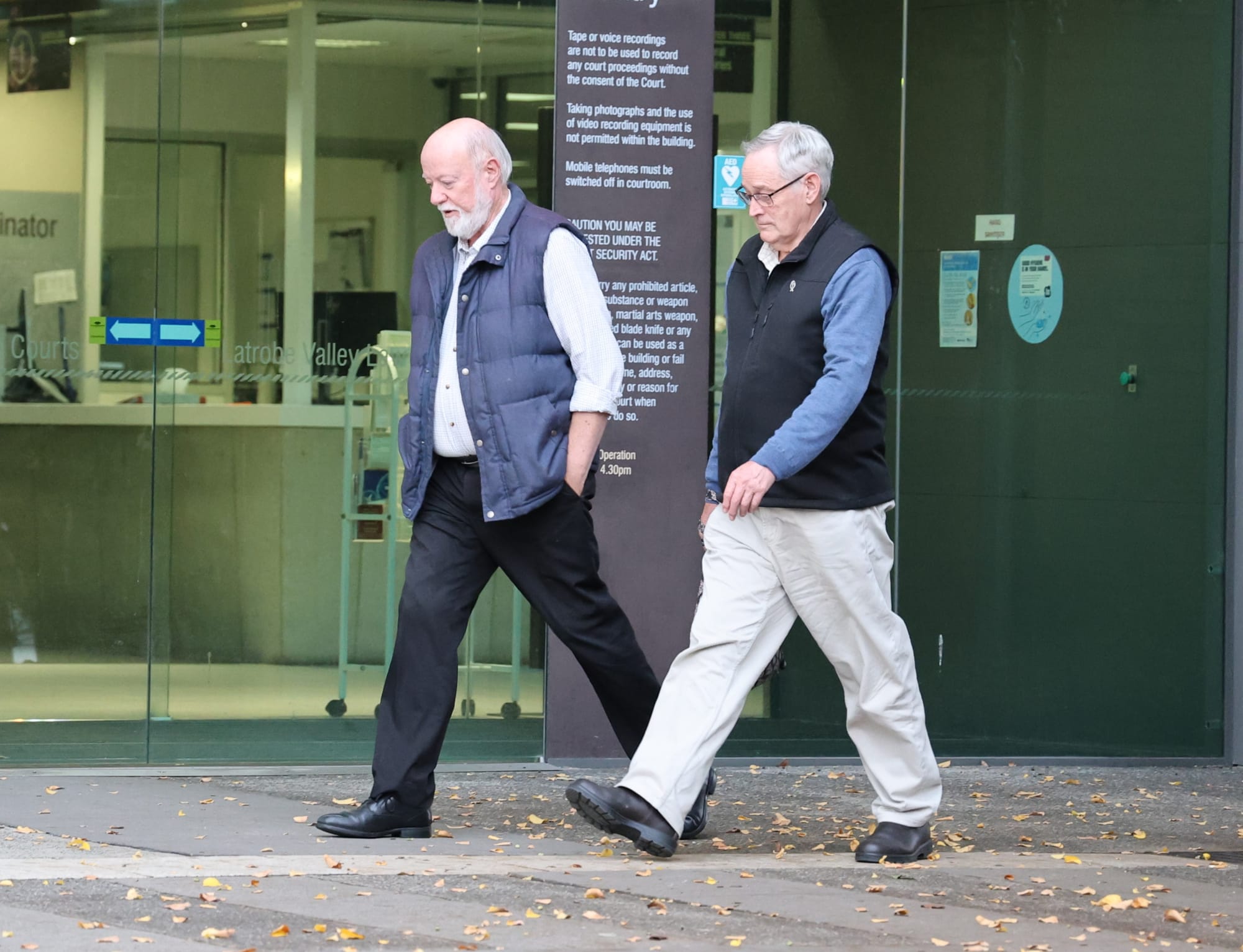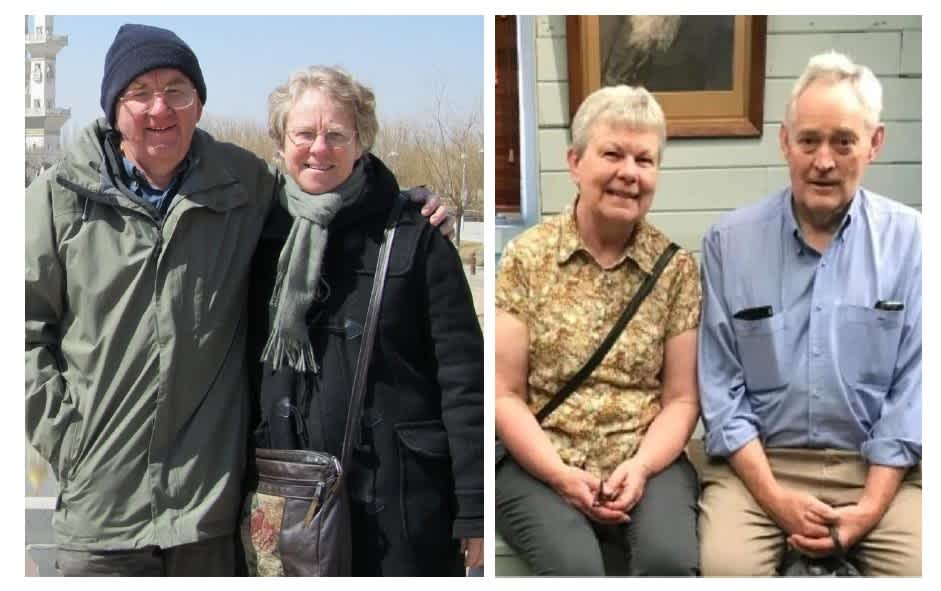The sad truth about a tragedy that rocked a community
MEDICAL details surrounding the deaths of three Korumburra family members, and the miraculous survival of a fourth, were publicly released for the first time last Friday, May 23. Under normal circumstances, the general community would never hear...

MEDICAL details surrounding the deaths of three Korumburra family members, and the miraculous survival of a fourth, were publicly aired for the first time last Friday, May 23.
Under normal circumstances, the general community would never hear such intensely private matters.
These, however, are not normal circumstances.
All relevant events leading up to the deaths of retired Korumburra high school teacher Don Patterson and his wife Gail, formerly an office administrator at the school, and Gail’s sister Heather Wilkinson, who taught English to adult migrants locally, are being made public, including medical records, as part of the triple murder trial in the Supreme Court in Morwell.
The three family members and Heather Wilkinson's husband Ian all fell ill after eating a meal which included death cap mushrooms at Leongatha on July 29, 2023.
On Day 18 of the trial the court heard from Professor Stephen Warrillow, the director of intensive care at Austin Health.
He was responding to questions about the clinical presentation and care of four patients; Don and Gail Patterson, and Heather and Ian Wilkinson, who were treated at the Austin Hospital in July and August 2023.
Don Patterson was the first to arrive, then Gail, then Heather and finally Ian.
Don arrived at the Austin Hospital on Monday, July 31, 2023 at 2.30pm by ambulance from Dandenong. He had displayed acute onset vomiting with hematemesis, that is vomit with blood, and profuse bloody diarrhoea from the previous Saturday evening, before being diagnosed with acute liver failure after transfer from Korumburra Hospital to Dandenong.
By the time he arrived at the Austin, Professor Warrillow said Mr Patterson was critically ill and in multiple organ failure, with extremely high measurements of substances in the blood consistent with massive liver injury, grossly abnormal blood clotting and a range of other abnormalities.
He was in an induced coma with a life support ventilation tube down into his windpipe while receiving medication to assist his comfort.
The next to arrive at the Austin was Gail Patterson. She arrived at 8pm, also on July 31.
“She was also critically ill and in multiple organ failure,” according to Dr Warrillow.
She was intubated and receiving a number of treatments similar to those being received by her husband Don.
Heather Wilkinson arrived at the Austin next, on Tuesday, August 1, 2023 at about 1.30pm. She was also critically ill in a state of multiple organ failure and being intubated. She was receiving a number of the therapies, like the others, to target the amanita poisoning from the death cap mushrooms she had ingested including silibinin and multidose activated charcoal but due to the rapid progression of her multiple organ failure she was considered too unwell to undergo the complex and extensive surgery required for a liver transplant.
Ian Wilkinson also arrived at the Austin Hospital on August 1 at 4.25pm.
At Dandenong Hospital it became apparent that he too had acute liver failure and was therefore transferred to the Austin which hosts the State Liver Transplant service and has experience treating patients with amanita mushroom poisoning.
“He was already intubated and on mechanical ventilation and he was critically ill with acute liver failure,” said Dr Warrillow.
Among the treatments that they received were multi-doses of activated charcoal and also intravenous silibinin, a specific antidote to amanita mushroom poisoning.
As explained by Professor Warrillow, a feature of death cap mushroom poisoning is that the toxins can continue to circulate in the body.
“Once the amanita poison is within the body, unfortunately the body tends to recycle it internally, and that can actually cause persisting injury to the liver,” he said.
He said they use activated charcoal in an attempt to remove the amanita poison from the bowel and have it excreted from the body to interrupt the recycling process.
Despite the very intense treatments Don was receiving in the ICU at the Austin, by August 1, he was getting worse, according to Dr Warrillow.
“Really the measures that we were observing, both clinically and on investigations were moving in the wrong direction. We were very, very worried about his progress.”
They added plasma exchange and Vitamin C but the following day his condition was worsening, with his circulation in particular increasingly compromised and requiring further support, with the normal function of the bowel also ceasing.
By Friday, August 4 there appeared only one course of action.
“After extensive consultation with a range of senior specialists, it was thought that the only possibility of saving his life was through a liver transplant,” said Dr Warrillow.
However, after the transplant, Don got relentlessly worse and he ultimately passed away at 11.30pm on Saturday, August 5 due to refractory multiple organ failure secondary to acute liver failure, due to clinically diagnosed amanita mushroom poisoning.
The day after her arrival at the Austin Hospital, Gail’s health was rapidly deteriorating with her organs essentially shutting down and her body in a state of advanced shock.
By August 2, according Dr Warrillow, she remained extremely unwell, to the point that from a clinical perspective, her liver essentially was not working at all. She was considered too unwell for a liver transplant.
An abdominal X-ray revealed she was likely suffering from gut ischemia which Dr Warrillow said was an extremely grave prognosis essentially meaning the blood supply to the bowel had stopped flowing.
Gail Patterson passed away at 5.55pm on August 4, 2023.
Heather Wilkinson’s condition followed a similar path the her sister Gail’s but declined more rapidly. She was also ruled out of a liver transplant, and despite a broad range of therapies, Heather died 2.05am, earlier on the same day, August 4, 2023.
These must have been hard reports for Ian Wilkinson to hear, seated in the public gallery in Court Room 4.
Mr Wilkinson was also extremely unwell by August 2, and worse on August 3 when his circulation required considerably more support, and August 4 when he developed an abnormal heart rhythm.
“We were worried there might be an evolving intra-abdominal catastrophe such as ischemic bowel and a laparotomy was undertaken to assess for that,” said the doctor.
No significant bowel problem was found and over the next few days, the 5th, the 6th, the 7th of August, there was slow but important improvement, according to Dr Warrillow.
“It was very slow, because he was coming from a situation of extreme critical illness, but he did slightly improve over that time.”
Ultimately, the breathing tube was removed on August 14 and Ian Wilkinson was discharged from ICU at the Austin on August 21 and moved to the rehabilitation ward at Heidelberg Repatriation Hospital on September 11.
“How close did Ian Wilkinson come to dying?” asked counsel for the prosecution, Sarah Lenthall.
“We thought he was going to die. He was very close,” said Professor Warrillow.
Ms Lenthall also asked Dr Warrillow about the clinical diagnosis of amanita mushroom poisoning, other than the reports the four patients had all eaten the same meal of mushrooms.
He said that while there was no test in clinical practice that specifically identified amanita toxin, the symptoms were highly consistent.
“From the time of initial ingestion there's a period between that point and the later development of gastrointestinal symptoms such as severe diarrhoea and often very severe diarrhoea, sometimes with blood in it and vomiting.
“That can persist for a period of time, many hours often, followed by what may feel like some improvement for the patient, then, after that, over a relentlessly progressive and quite frightening rapid deterioration into multiple organ failure,” he said with a very high risk of dying.
Even with optimal care, there is a high rate of mortality, referring to the patients admitted to ICU at the Austin.
The defence had no questions for Professor Warrillow.
The four patients, three of whom died and one very close to dying, all got sick after eating a meal of beef Wellington and death cap mushrooms at Erin Patterson’s Leongatha home on Saturday, July 29.
Erin Patterson has been charged with three counts of murder and one of attempted murder as a result. She has pleaded not guilty to all changes, maintaining that what happened on the day was a tragedy and a terrible accident.
The trial continues into its fifth week at Morwell on Monday.






